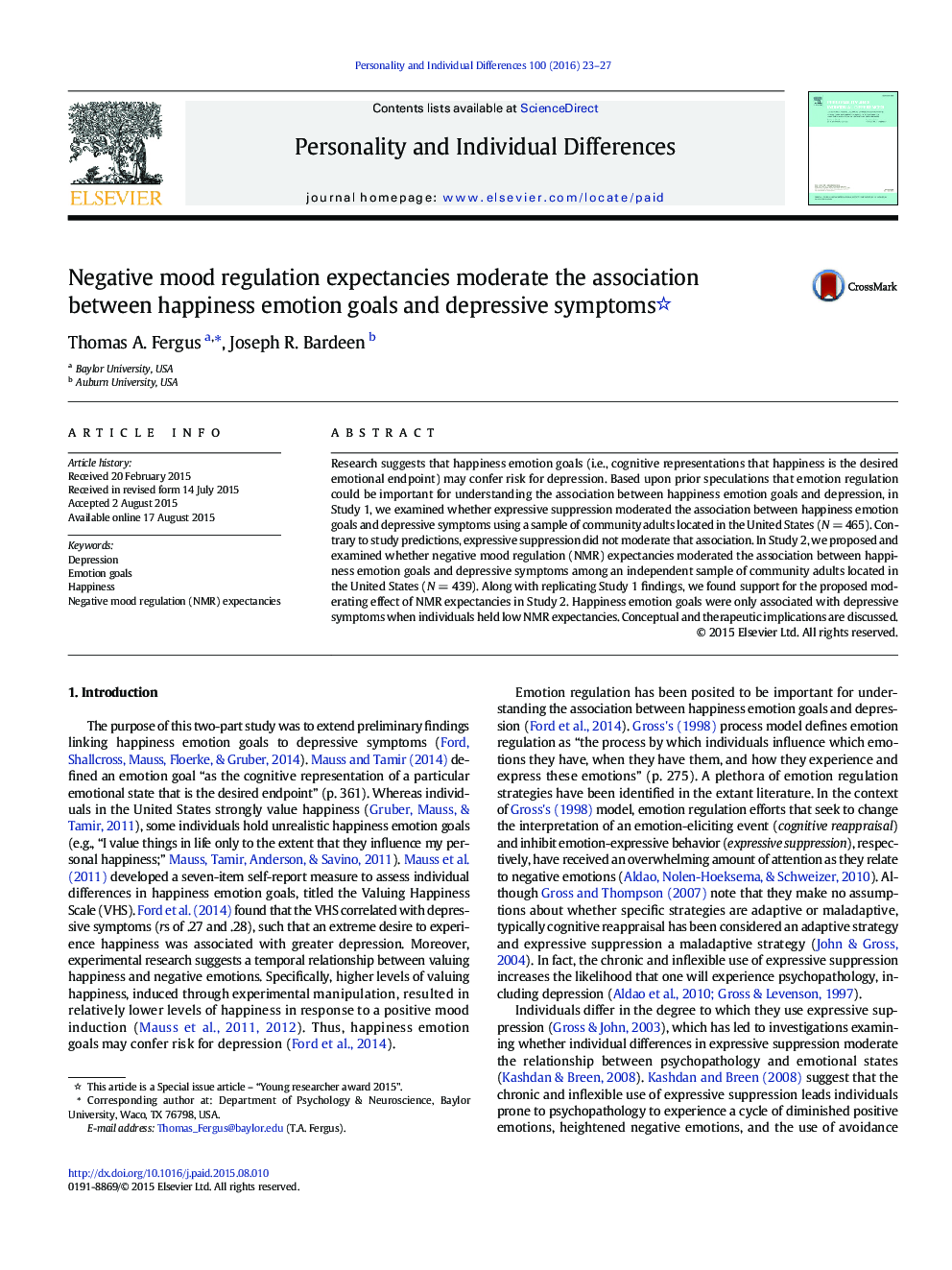| Article ID | Journal | Published Year | Pages | File Type |
|---|---|---|---|---|
| 889620 | Personality and Individual Differences | 2016 | 5 Pages |
•Further examined association between happiness emotion goals and depression•Expressive suppression did not moderate association in Study 1.•Negative mood regulation (NMR) expectancies moderated association in Study 2.•Happiness emotion goals related to depressive symptoms when low NMR expectancies
Research suggests that happiness emotion goals (i.e., cognitive representations that happiness is the desired emotional endpoint) may confer risk for depression. Based upon prior speculations that emotion regulation could be important for understanding the association between happiness emotion goals and depression, in Study 1, we examined whether expressive suppression moderated the association between happiness emotion goals and depressive symptoms using a sample of community adults located in the United States (N = 465). Contrary to study predictions, expressive suppression did not moderate that association. In Study 2, we proposed and examined whether negative mood regulation (NMR) expectancies moderated the association between happiness emotion goals and depressive symptoms among an independent sample of community adults located in the United States (N = 439). Along with replicating Study 1 findings, we found support for the proposed moderating effect of NMR expectancies in Study 2. Happiness emotion goals were only associated with depressive symptoms when individuals held low NMR expectancies. Conceptual and therapeutic implications are discussed.
